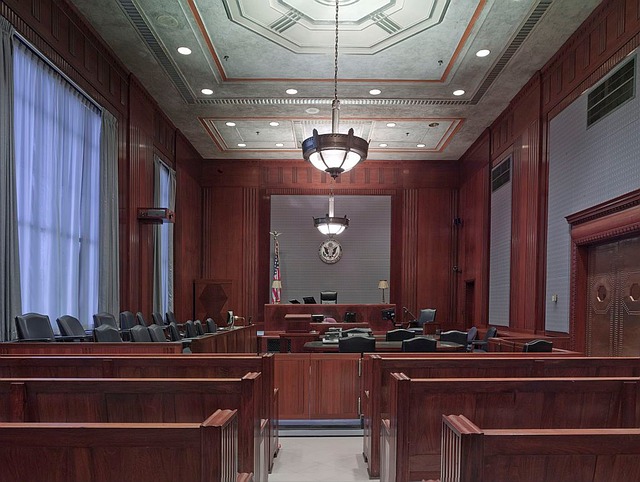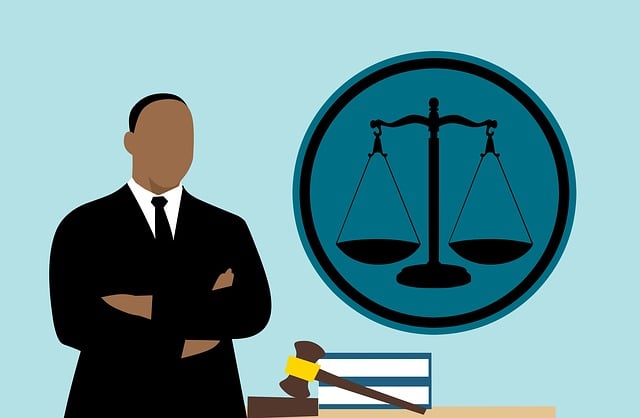Upon an individual's death, their estate is distributed either according to their will or under state intestacy laws. This process typically involves legal professionals who oversee the probate process, ensuring the deceased's final wishes are fulfilled while adhering to legal statutes. These experts manage will interpretation, courtroom proceedings if necessary, and mediation among heirs and beneficiaries. In cases without a will, state laws take precedence, with legal professionals drafting petitions and advocating for heirs within the court system to ensure assets are distributed according to intestacy laws. The courtroom is central to resolving disputes over estate distribution, providing a neutral platform where evidence is presented and decisions are made based on the law. Legal representation is crucial throughout this process to navigate complex legal requirements, protect stakeholder interests, and achieve fair and efficient outcomes. Estate planners or attorneys with specialized knowledge guide heirs through their entitlements and obligations, mediating among beneficiaries to preserve family unity and minimizing potential disputes. Should conflicts arise, these professionals offer resolution strategies or represent clients in litigation. Their expertise ensures the estate is managed lawfully and ethically, honoring the deceased's legacy and protecting all parties involved. The probate court oversees this process, ensuring legal compliance and ethical considerations are met in asset disbursement, while attorneys with expertise in estate planning provide critical guidance to executors on their fiduciary duties. The courtroom setting remains a cornerstone for validating or contesting wills and resolving any disputes that arise, highlighting the importance of understanding the legal framework governing probate and acting ethically throughout the process.
When a person passes away, their estate must be distributed according to their will or state intestacy laws. This process can be complex and emotionally charged, often necessitating professional guidance to navigate its intricacies. Our comprehensive article delves into the essential role of legal professionals in courtroom procedures for contested estate distribution. We explore strategies for ensuring fair and efficient estate settlements, emphasizing the importance of legal expertise. With a focus on key considerations in legally and ethically distributing estates, readers will gain valuable insights into making informed decisions during this delicate time.
- Navigating Estate Distribution: Understanding the Role of Legal Professionals
- Courtroom Procedures for Contested Estate Distribution
- Strategies for Fair and Efficient Estate Settlements with Professional Guidance
- Key Considerations in Distributing Estates Legally and Ethically
Navigating Estate Distribution: Understanding the Role of Legal Professionals

When an individual passes away, their estate must be distributed according to their will or state intestacy laws. This process can be complex and often requires navigating through legal procedures in a courtroom setting. Legal professionals play a pivotal role in this scenario, offering guidance and expertise to ensure the estate is distributed correctly. They interpret the deceased’s wishes as stated in their will, handle probate proceedings, and facilitate communication among heirs and beneficiaries. Their knowledge of applicable laws and ability to navigate the courtroom system are crucial for resolving any disputes that may arise among family members or between the estate and creditors. Engaging a legal professional early in this process can help mitigate potential conflicts and streamline the distribution of assets, ensuring that the deceased’s legacy is honored as intended.
In the absence of a will, state laws dictate how an individual’s assets should be distributed. The courtroom becomes the primary venue for resolving these matters when the estate goes through probate. Legal professionals are instrumental in this phase, as they help heirs understand their rights and responsibilities within this legal framework. They draft petitions, present evidence, and argue cases before judges to ensure that the distribution of the estate adheres to the intestacy laws. Their involvement is not just limited to the courtroom; they also assist in settling estates outside of probate, when possible, by guiding executors and beneficiaries through the necessary legal steps. With their expertise, these professionals safeguard the interests of all parties involved and facilitate a fair and efficient estate distribution process.
Courtroom Procedures for Contested Estate Distribution

When an estate distribution becomes contentious, and parties cannot reach an amicable settlement, the matter often proceeds to courtroom proceedings. The courtroom setting is where legal representatives for the estate’s beneficiaries or trustees present their cases to a judge who will make the final decision based on applicable law. The process typically involves filing a petition for probate and submitting evidence and testimony to support each party’s claim to assets. As the case progresses through various stages of litigation, from initial pleadings to discovery and eventually to trial, both sides must navigate complex legal procedures and adhere to strict timelines. The courtroom serves as a neutral forum where arguments are heard, evidence is scrutinized, and ultimately, a ruling is issued that delineates the distribution of assets according to the judge’s interpretation of the law and the merits of each party’s case. It is within this structured environment that the judicial system aims to provide a fair and impartial resolution to disputes over estate distribution.
In contested cases, the courtroom procedures can be protracted and complex, often requiring expert testimony or the appointment of an independent fiduciary to appraise assets and assess claims. The process is guided by state statutes and case law, which dictate the rules of evidence and procedure that all parties must follow. Adequate representation and a thorough understanding of these legal intricacies are crucial for beneficiaries and trustees involved in such disputes to effectively advocate for their interests and achieve a favorable outcome. The judicial system’s role in estate distribution, when left to courtroom decision-making, underscores the importance of clear legal directives and the need for professional guidance to navigate these complex situations.
Strategies for Fair and Efficient Estate Settlements with Professional Guidance

Navigating the complexities of estate distribution often necessitates the expertise of professionals to ensure fairness and efficiency. A qualified estate planner or attorney can provide invaluable guidance, helping heirs understand their rights and responsibilities. They can also facilitate communication among beneficiaries, which is crucial for maintaining family harmony during what can be a challenging time. Moreover, these experts are adept at interpreting the laws that govern wills and probate, thereby reducing the likelihood of disputes that might end up in courtrooms. In cases where disputes arise, professional guidance becomes even more critical, as these advisors can offer strategies to resolve conflicts amicably or represent parties in court if necessary. Their involvement often streamlines the process, ensuring that the estate is settled in a manner that honors the deceased’s wishes while also safeguarding the interests of all involved parties.
Key Considerations in Distributing Estates Legally and Ethically

When navigating the complexities of estate distribution, individuals must consider the legal and ethical frameworks governing asset disbursement. The probate court plays a pivotal role in overseeing the process, ensuring that the decedent’s will is executed according to state laws, or intestate succession if there is no valid will. Legal guidance is paramount to address potential challenges, such as disputes among beneficiaries or creditors’ claims against the estate. Ethical considerations extend beyond adhering to legal mandates; they involve a respectful and fair approach to fulfilling the deceased’s wishes while considering the needs and rights of all heirs and legatees.
Professional guidance from attorneys specializing in estate planning is crucial for executors to understand their fiduciary responsibilities, which include identifying and securing estate assets, accurately inventorying them, and distributing them according to the legal requirements and the decedent’s intentions. The courtroom serves as a forum where disputes are resolved, and where the validity of wills is confirmed or contested. It is within this setting that the probate process unfolds, often requiring the appointment of an executor or administrator to manage the estate and its eventual distribution. This underscores the importance of understanding the legal landscape and ensuring that all actions taken are within the bounds of the law, reflecting a commitment to both legality and ethics in estate distribution.
When the time comes to distribute an estate, the complexities and legal requirements can be overwhelming. The process is more than mere asset allocation; it’s a delicate matter that demands professional guidance to ensure fairness and adherence to legal standards. This article has illuminated the pivotal role of legal professionals in navigating the intricacies of estate distribution, particularly when contested matters lead to courtroom procedures. By employing strategies for efficient and fair settlements with expert advice, parties can navigate these waters with greater ease and confidence. In conclusion, the guidance of seasoned legal experts is not just beneficial but indispensable in handling estate distribution, safeguarding the rights and interests of all involved while upholding ethical and legal standards throughout the process.
